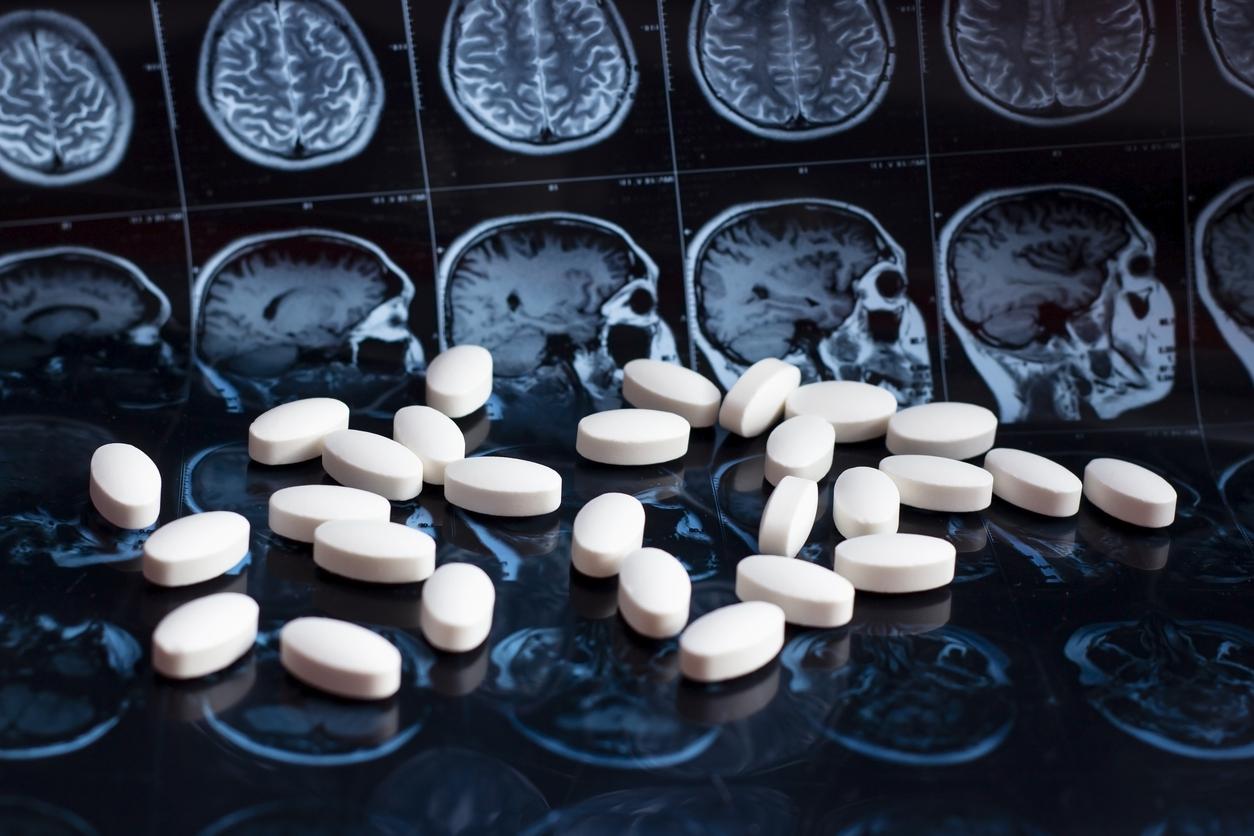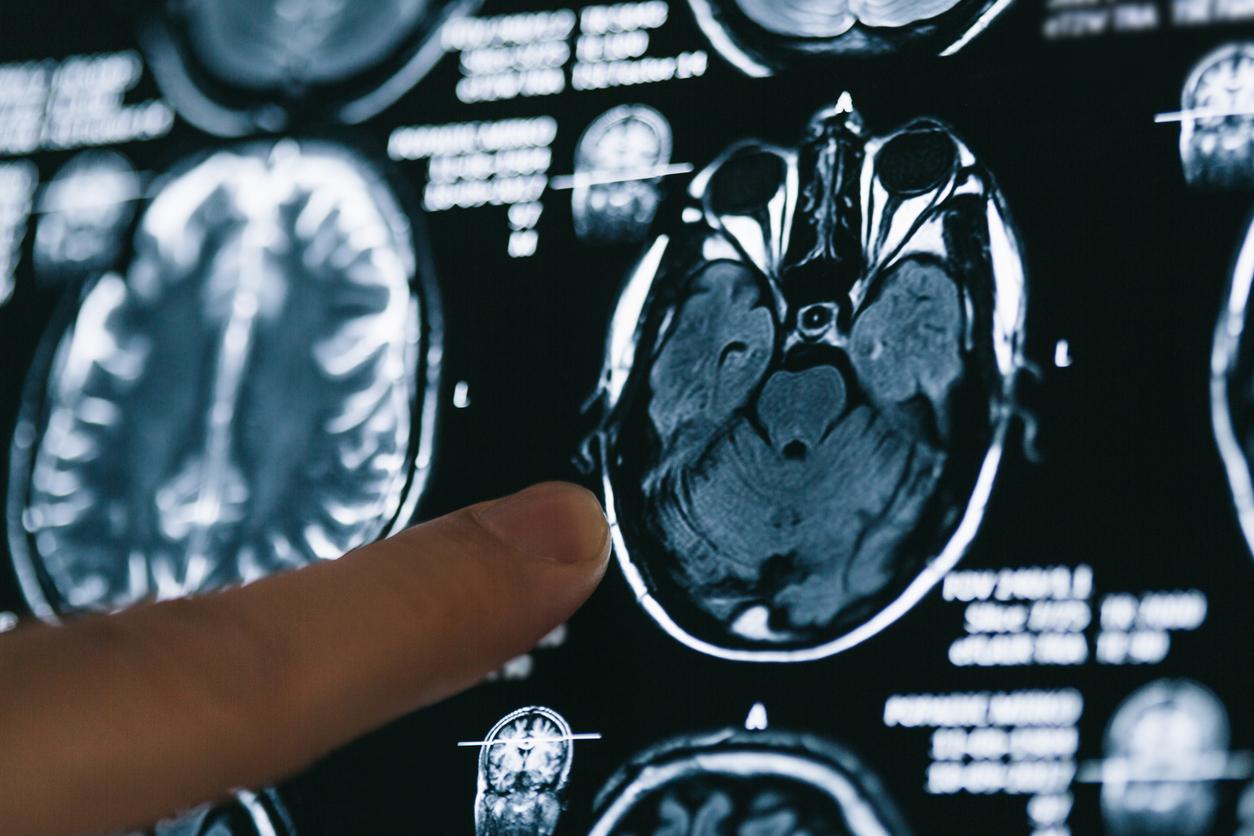Alzheimer’s disease is the most common neurodegenerative disease. However, there is still no treatment capable of curing this pathology.

Alzheimer’s disease has held medicine in check for years. This pathology is the most common neurodegenerative disease. It is estimated that 900,000 people are affected within France, and 225,000 new cases are diagnosed every year in France (i.e. one person every 3 minutes).
However, there is still no treatment capable of curing this pathology, which manifests itself in memory disorders, in the execution of simple gestures, in orientation in time and space, as well as in a decline. irreversible cognitive functions.
“For 20 years, we have not found a new drug against Alzheimer’s disease, explains Dr. Stéphane Epelbaum, neurologist specializing in Alzheimer’s disease at Pitié-Salpêtrière and researcher at the ICM. The new treatment, if it sees the light of day, will unfortunately not concern patients who suffer from Alzheimer’s disease at an advanced stage. he warns.
Too modest efficacy of treatments with regard to adverse effects
Only four drugs are currently on the market, which are only specific symptomatic treatments for the disease. They were delisted in June 2018 following an opinion from the High Authority for Health (HAS), which deemed their effectiveness too modest in view of the adverse effects. “I confirm the delisting of anti-Alzheimer’s drugs, and this is absolutely not for budgetary reasons. This is because these drugs have been shown by the HAS to be harmful and cause a lot of side effects, with fractures and falls. We do not reimburse so that people no longer use them”, had justified the former Minister of Health, Agnès Buzyn, Wednesday, May 30, 2018, on the set of “19/20” of France 3.
The reasons for failure
How to explain such a failure? Firstly, because the search for drugs against Alzheimer’s disease has proven to be extremely complex, and drug companies have suffered numerous discontinuations of drugs in the advanced development phase. As a result, Alzheimer’s disease is emblematic of these “trains that do not arrive”, despite 82 ongoing clinical trials:
o Four hundred large-scale international studies have been stopped in the space of twenty years.
o Of the 117 molecules for the treatment of Alzheimer’s disease currently undergoing clinical studies, only 12% of them are at an advanced stage of development.
o The last marketing authorization for a drug against Alzheimer’s disease dates back seventeen years.
Then, the available screenings are not early enough. The researchers believe that the molecules should be administered before the first symptoms of the disease appear. However, the current means do not make it possible to predict among the people carrying lesions those who will or will not develop Alzheimer’s. “This will undoubtedly involve the development of an algorithm analyzing biological markers, brain imaging, genetic predispositions…”, believes the Leem.
Promising leads
However, there is hope in the face of these very bleak observations. A molecule in phase III seems promising: it would be able to deactivate a key protein in Alzheimer’s disease, beta-amyloid, which accumulates in plaques in the brain of patients. A marketing authorization application should be filed in 2020 with the American drug agency, the FDA.
Different studies have also highlighted the possibility of using blood tests as an early detection method. Exhibited in The Journal of the American Medical Association (JAMA), a new test has been developed to measure the concentration of the Tau protein in the blood, called phospho-tau217. For researchers, the reliability of this method is as high as those already established, including “positron emission tomography (PET) imaging and cerebrospinal fluid biomarkers, which are invasive, expensive and less available.” They estimate that this helped to distinguish people with Alzheimer’s disease from others with a reliability of between 89 and 98%.
Finally, a new study published in the Journal of Alzheimer’s Disease indicates that factors such as age, reproductive stage and hormone levels should be considered in women, who are more affected by the disease, and suggests early postmenopausal estrogen replacement to protect against development of pathology.
We still have no medicine, but “this does not mean that the tests have taught us nothing, on the contrary. Over the past three years, several studies have yielded very encouraging results regarding amyloid plaques.” concludes Doctor Stéphane Epelbaum.
Subject made from the LEEM file “100 questions about medicine”
Find below the LEEM sheet on the theme “Why is there still no medicine for Alzheimer’s disease?”
.

















